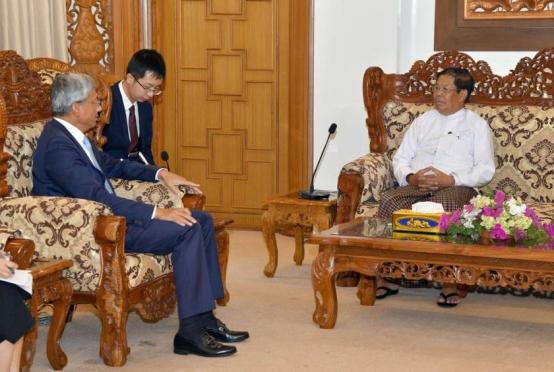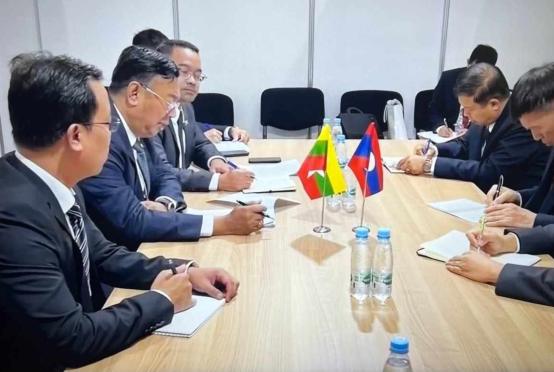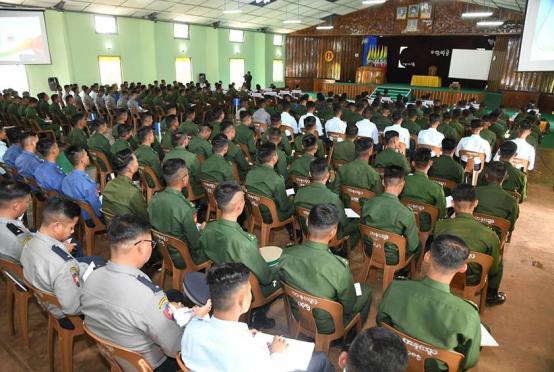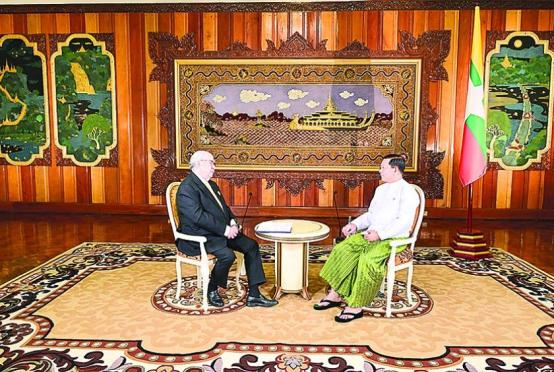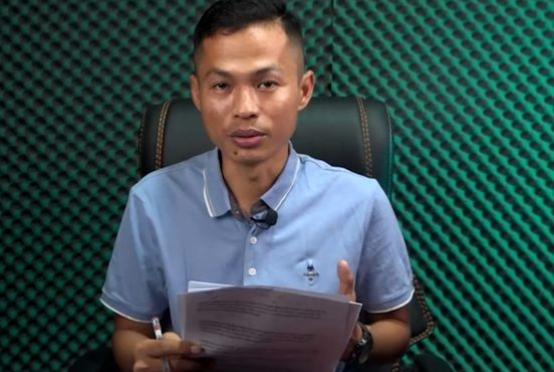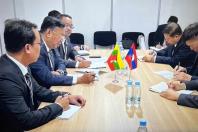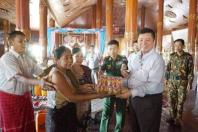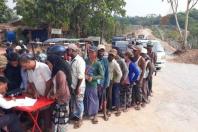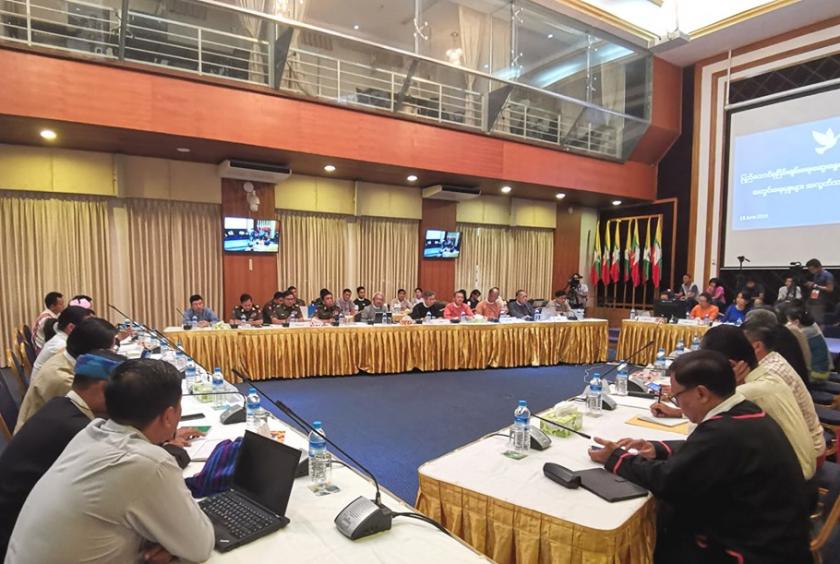
Peace process has remained deadlocked as ethnic armed organizations (EAOs) concentrate on federal principles and Tatmadaw (defence services) on non-secession from the Union, Colonel Sai Ngin, spokesperson of Restoration Council of Shan State (RCSS).
The move came from the an informal meeting of secretaries from UPDJC at the office of NRPC in Yangon on June 13.
The EAOs set their heart on discussing federal principles. Similarly Tatmadaw lays emphasis on discussion of non-secession from the Union and it does not want non-secession to be touched. We are in search of focal point, but haven’t seen it yet. They blame each other for the slow-running peace process, said Colonel Sai Ngin.
The secretaries of the UPDJC include representatives from the government, parliament, the Tatmadaw, the EAOs and official political parties.
The Union Peace Conference also known as the 21st Century Panglong Conference must be held every six months according to the agreed principles. When four years come, it will have been held about eight times. But it could be held only four times.
The EAOs including the RCSS and the KNU signed the NCA on October 15 in 2015. The NMSP and the LDU signed the NCA early 2018. The UPC was held for one time in the time of the previous administration and it was held for three times in the time of the current government.
“Mutual trust is needed in any negotiation. Pretended culture and friendship without essence can’t work negotiation. Negotiations need transparency. Successful discussions and negotiations depend on mutual trust,” said Khin Zaw Oo, a government peace negotiator.
Informal meetings and discussions contribute towards trust building, but it isn’t enough. It is also necessary to hold official meetings and discussions in accord with rules and regulations, said Khin Zaw OO.
Opportunities capable of holding discussions are available, but they fail to come to the table. Outside discussions are not beneficial to negotiation, but cause even obstacles, said Khin Zaw Oo.
Translated and Edited by Win Htut

